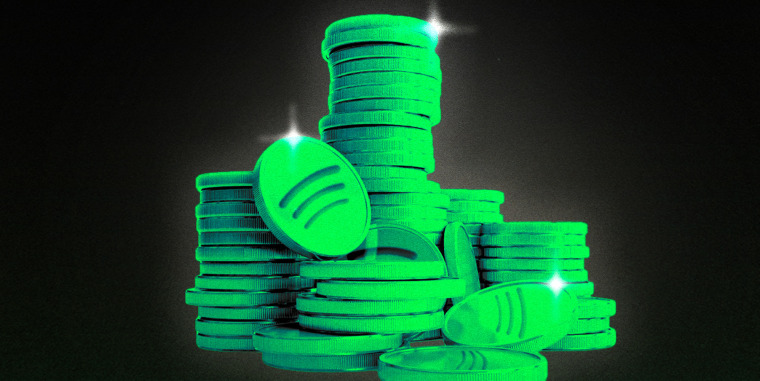Spotify Wrapped dropped on Wednesday, which means it's the most wonderful time of the year for some users of the mega-popular audio streaming service.
A quick refresher for the non-Spotify users among us: The Wrapped feature is a personalized data compilation that shows users which artists, songs and genres they listened to most that year. It's a marketing campaign that's actually fun, and users have been known to tailor the music they listen to throughout the year as a means of curating their Wrapped roundups.
Yet seeing everyone share their Spotify Wrapped data is a fresh reminder that artists on the platform often get the short end of the stick. Spotify's royalty system has faced criticism for not paying artists their fair share. The platform does not pay according to a per-stream rate, but rather puts all the revenue from subscribers and ads into a giant pot, and divides that share according to their respective "streamshare." Under this model, artists are estimated to receive between $0.003 to $0.005 per play.
That's about to change. Beginning early next year, Spotify will only pay royalties to artists whose tracks have been streamed 1,000 times in the past 12 months, effectively locking out the smallest artists from the "streamshare" pot. The money that would have been paid out to these small artists — which Spotify said amounts to $40 million a year — will instead go to "those most dependent on streaming revenue."

According to Spotify, artists generally don't pocket the earnings from tracks that have under 1,000 streams anyway, because they don't meet the labels and distributors' minimum withdrawal amount. The company also says it does not make any additional money under the new model. But musicians have said they feel the model is “putting a number on art," and industry experts said that this change essentially makes Spotify the arbiter of which artist is deserving of payment.
I don't mean to be a bummer here. I listen to most of my music on the platform, and I love Spotify Wrapped: I enjoy learning about my listening behavior and trying to deduce the stages of my life based on the music I listened to throughout the year. I love that it feels so personalized, and I'm a sucker for cool graphics. But music streaming platforms have changed the industry so drastically. They’ve changed the way we consume music, and they've even changed the way artists write songs. There has to be a way for multibillion-dollar companies to both keep music accessible and appropriately compensate musicians — especially fledgling, independent ones.
